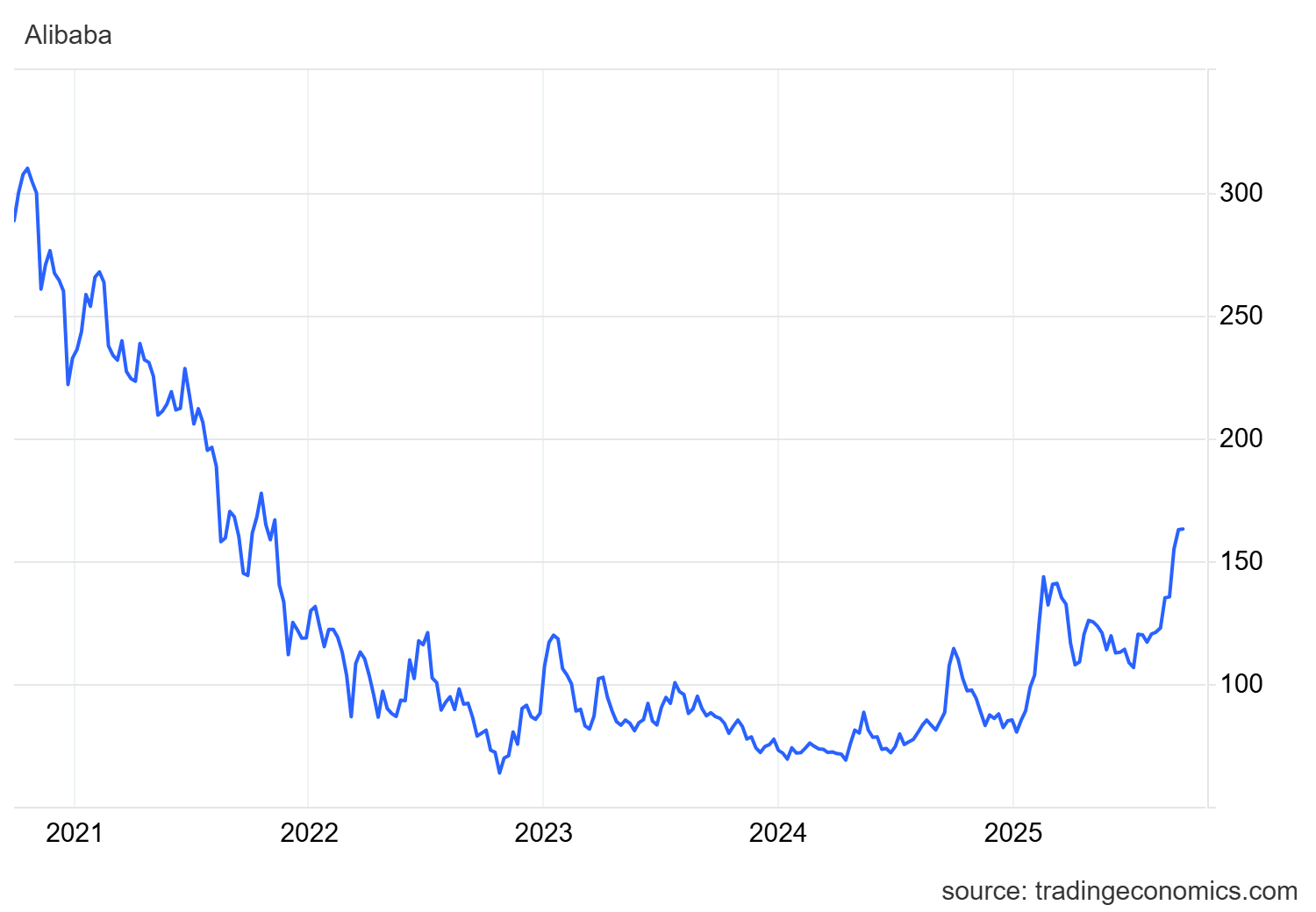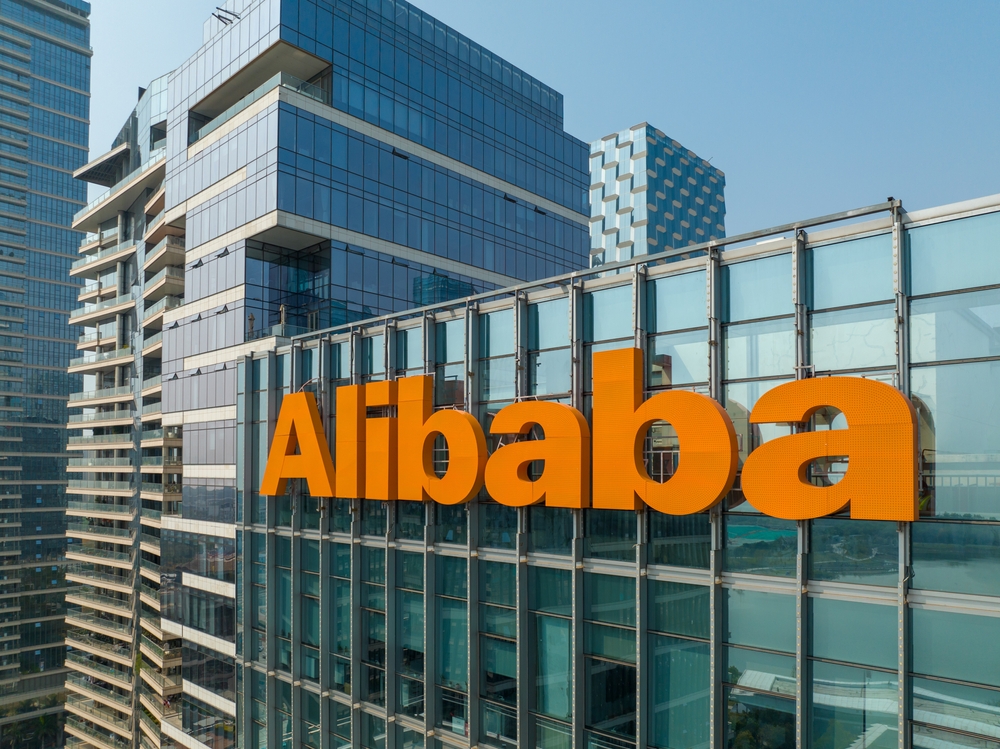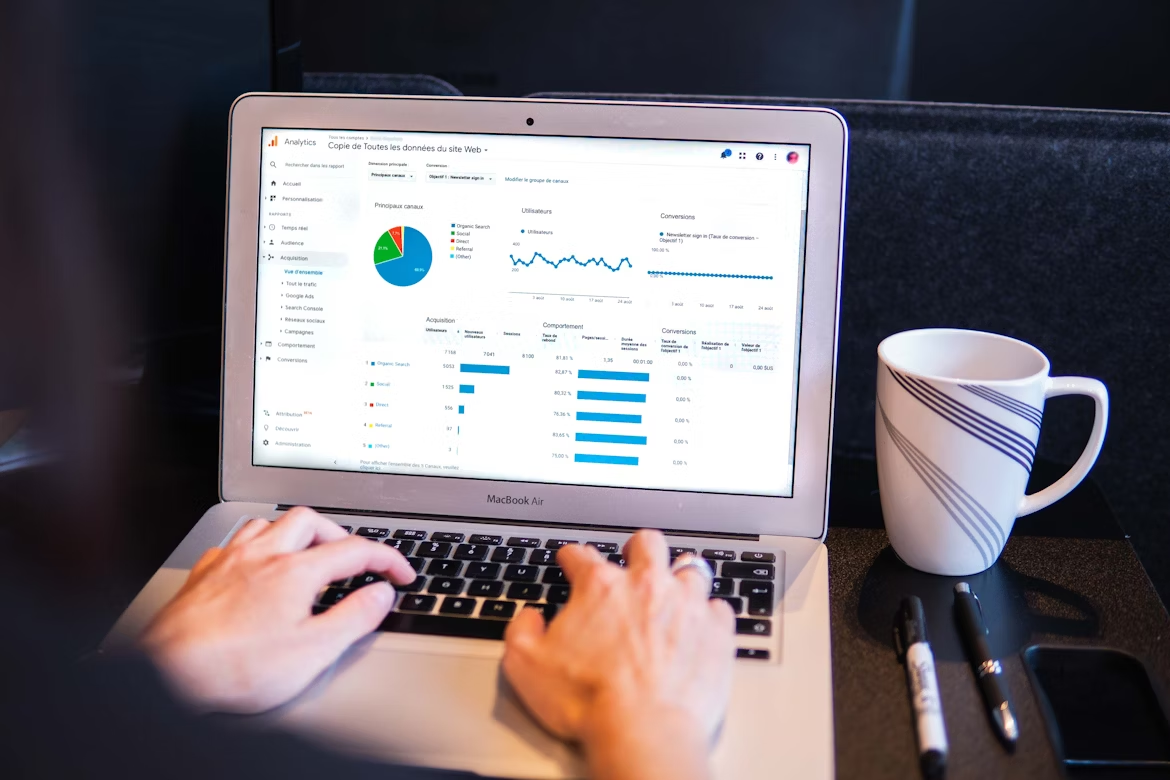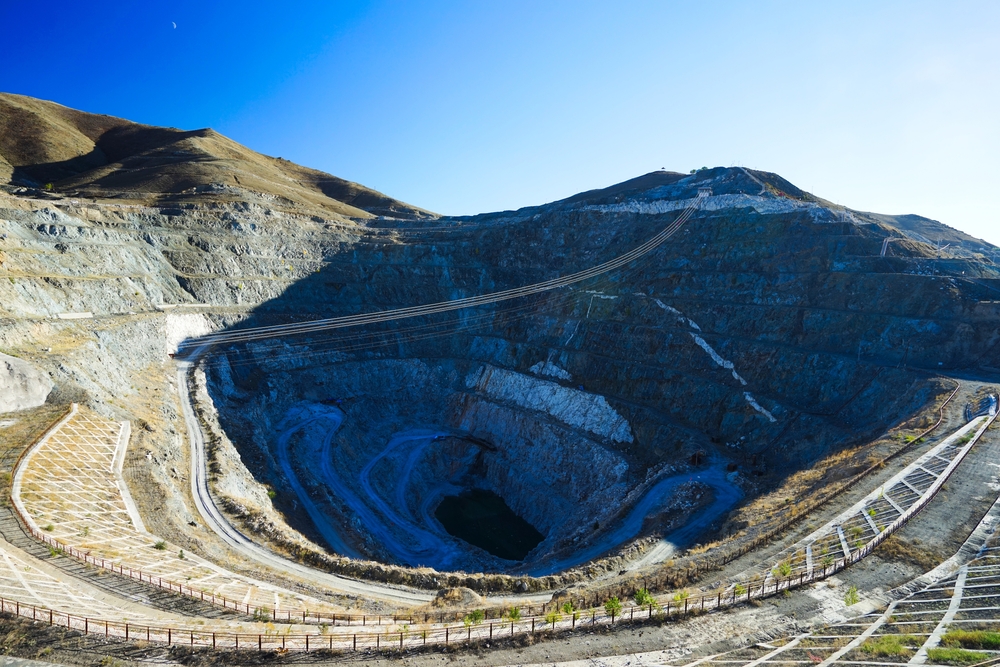A few years ago, it seemed that Alibaba’s golden era was over. Stricter regulation in China, a slowdown in e-commerce, and geopolitical tensions with the U.S. put the company’s stock under significant pressure. However, 2025 shows that the tech giant has not said its last word – during Wednesday’s trading, the stock price of this Chinese giant rose by almost 10%, bringing its total increase for the year to over 100%.* What is the reason, and what comes next?
AI as a New Growth Engine
The investor-desired turnaround is not a coincidence but the result of a clear strategy. CEO Eddie Wu announced that Alibaba plans to invest even more in artificial intelligence, on top of its ongoing three-year project worth 380 billion CNY ($53 billion). The ultimate goal is nothing less than to prepare the company for the era of artificial superintelligence. Wu emphasized that global AI investments over the next five years will exceed $4 trillion, which he described as the largest investment in computing power and research in history.

Performance of Alibaba’s Share Price Over the Past Five Years.
Products and New Technologies
For tech enthusiasts and investors, the key point is that Alibaba not only makes promises but also delivers real results. Recently, the company unveiled its new comprehensive language model Qwen3-Max, along with an expanded portfolio of AI products. Ultimately, through Alibaba Cloud, the firm is positioning itself as a full-stack AI provider capable of offering complete solutions – from computing power and cloud infrastructure to training and deploying models.
Global Expansion of Data Centers
Another important signal for investors is the expansion of data centers. Alibaba opened new locations in Brazil, France, and the Netherlands, and is already planning additional projects for 2026, including Mexico, Japan, South Korea, Malaysia, and Dubai. With this move, the company ensures a stable presence in key markets and strengthens its ability to deliver AI services to global customers.
Partnerships and Geopolitics
Alibaba also does not forget about strategic partnerships. Last month, it signed an agreement with Unicom, which will deploy AI accelerators from its Alibaba Semiconductor division. This step fits into the broader picture of China’s efforts toward chip self-sufficiency, which, in the context of U.S. – China tensions, can be understood as a crucial move.
Conclusion
The dynamics of Alibaba in 2025 can be defined in two words – phenomenal comeback. A company many had written off is proving that it can find new growth drivers and adapt to a changing environment. Alibaba is building bridges in artificial intelligence not only at home but also globally, combining investments, new products, and infrastructure expansion. For investors, this is a clear signal that Alibaba aims to be not only an e-commerce giant but also one of the leaders of the AI era.
* Past performance is no guarantee of future results.
Sources:















